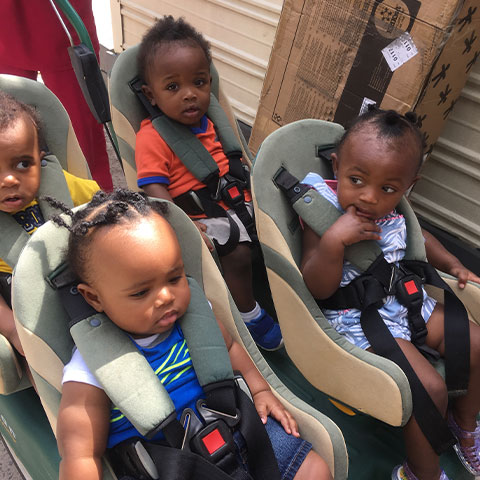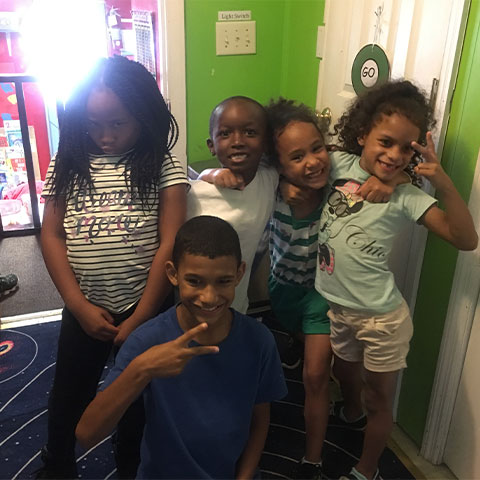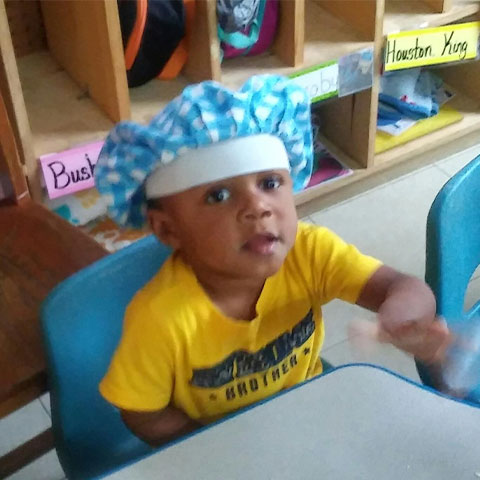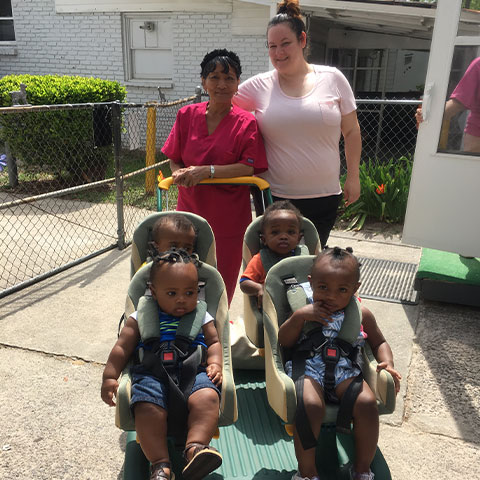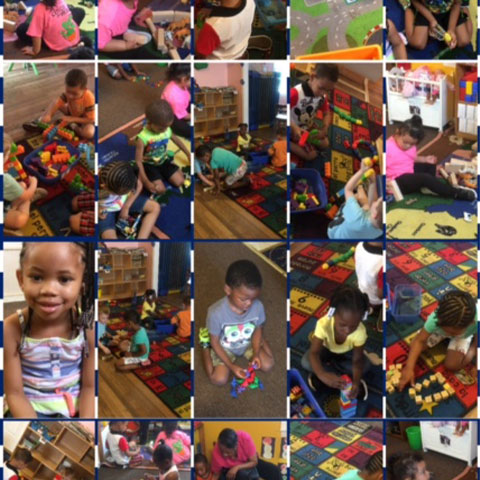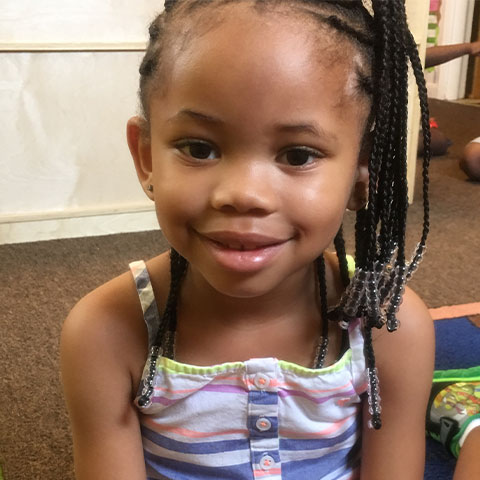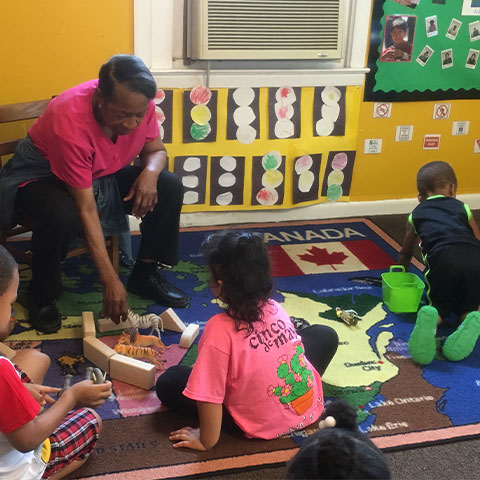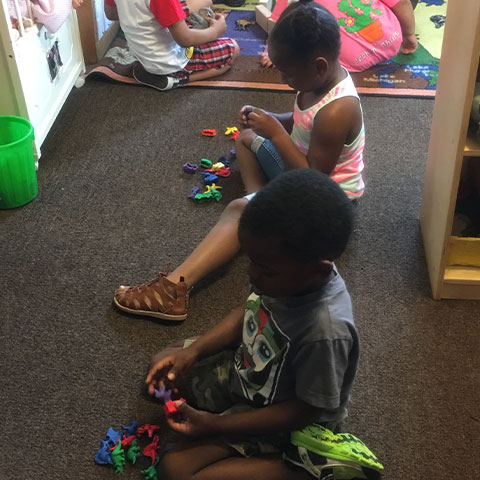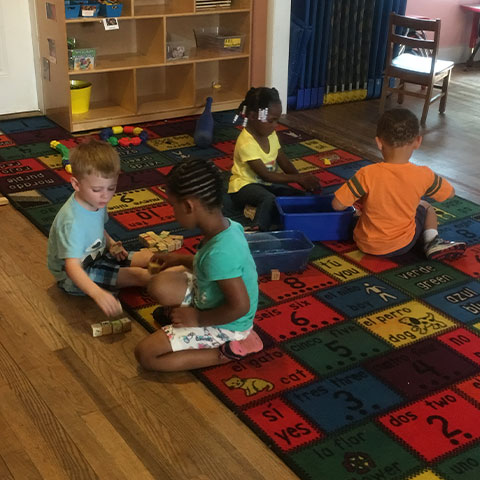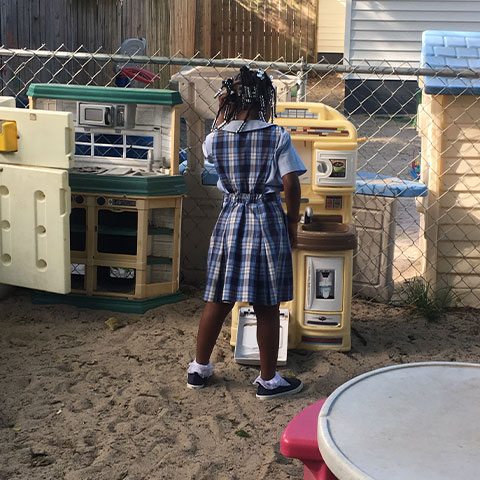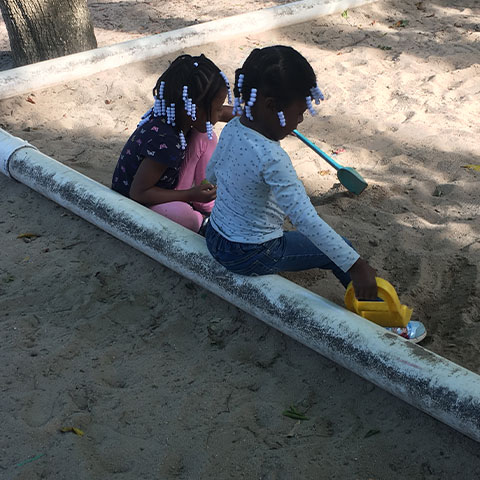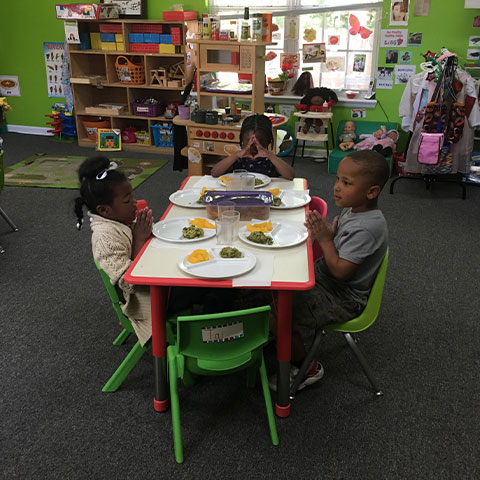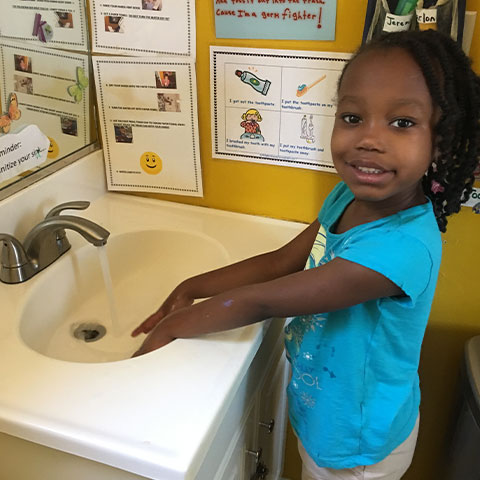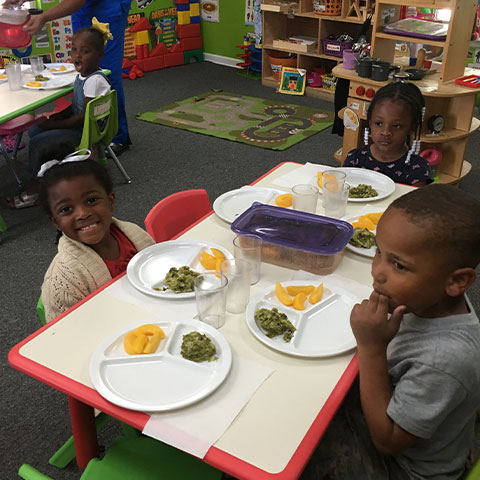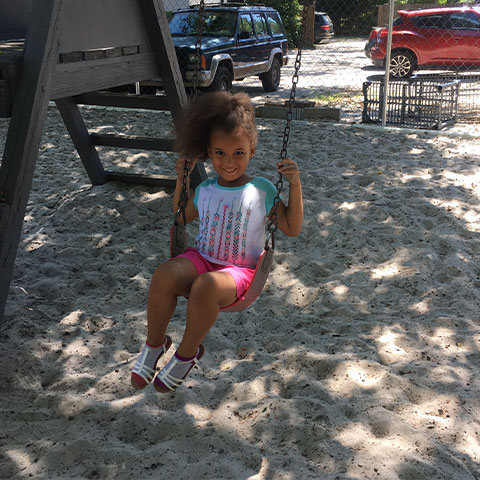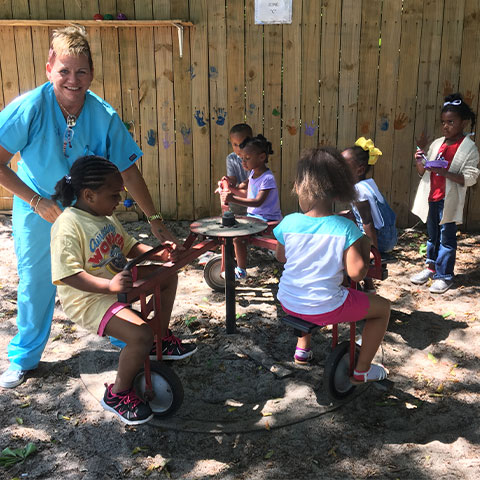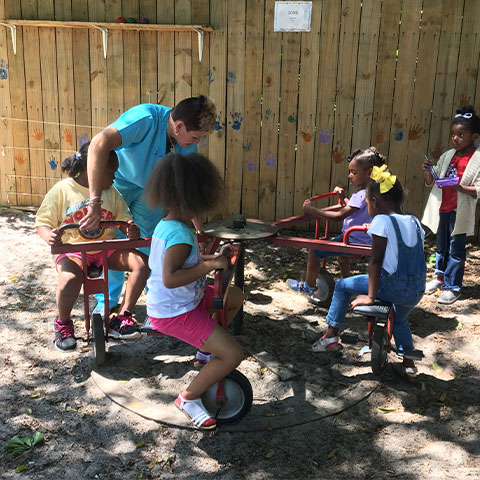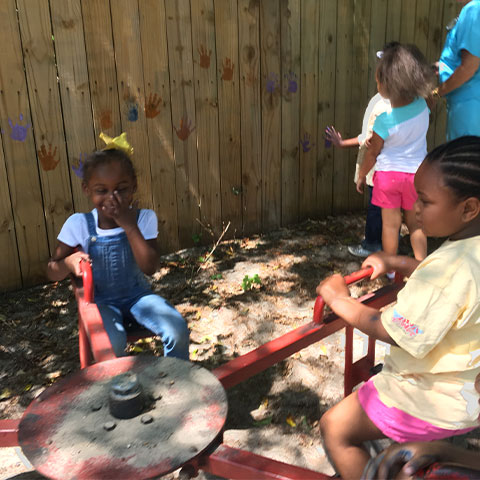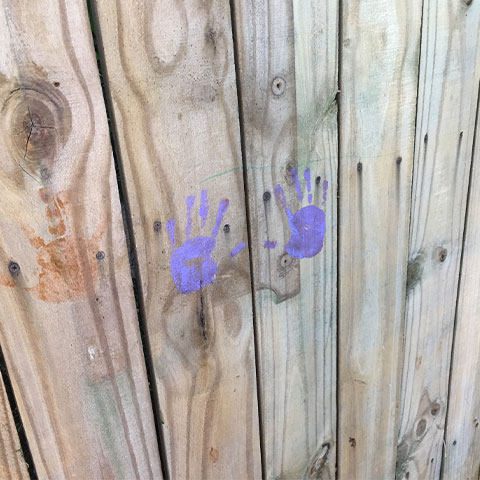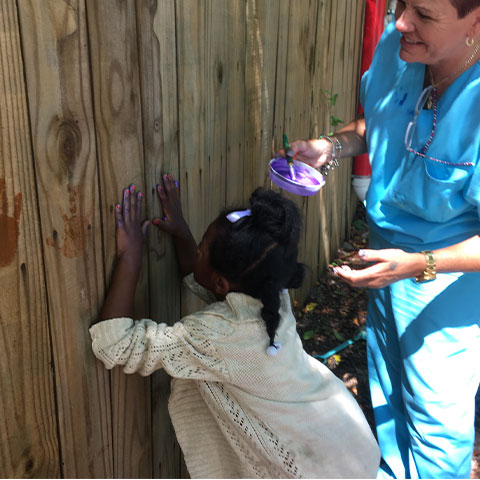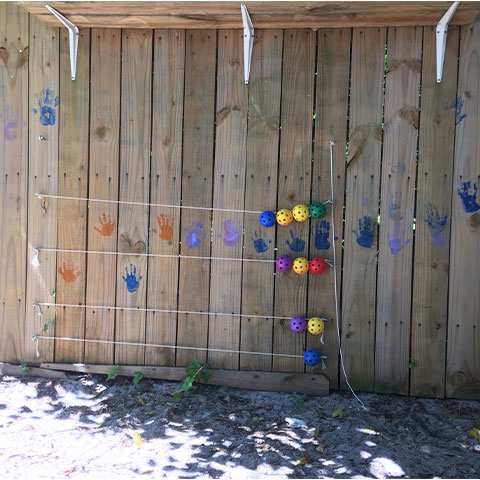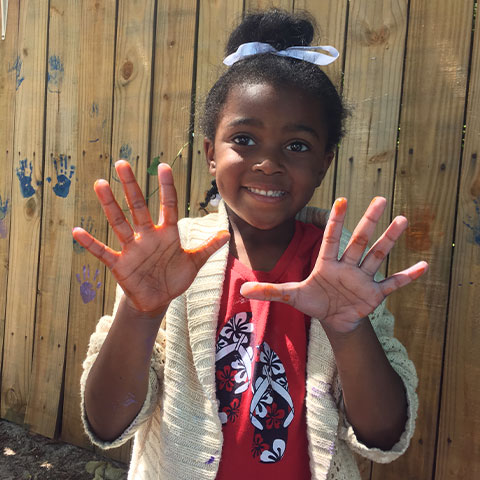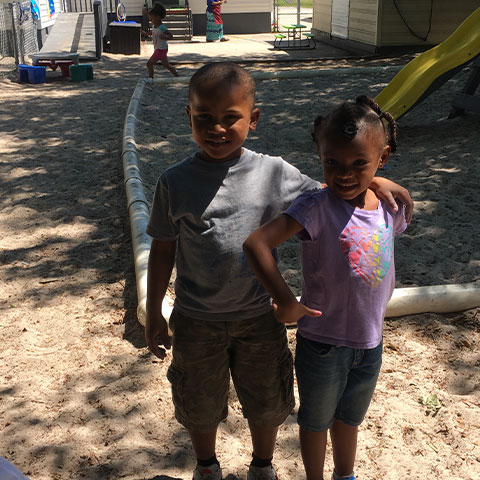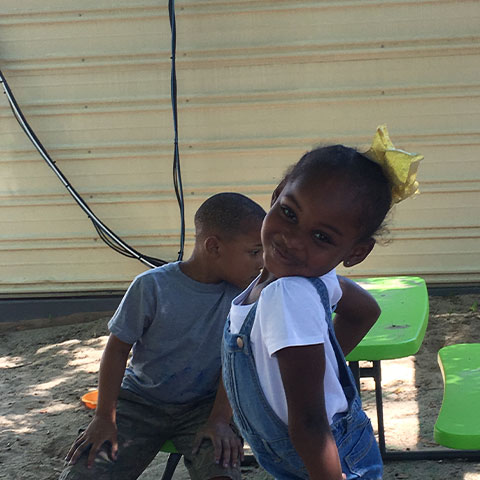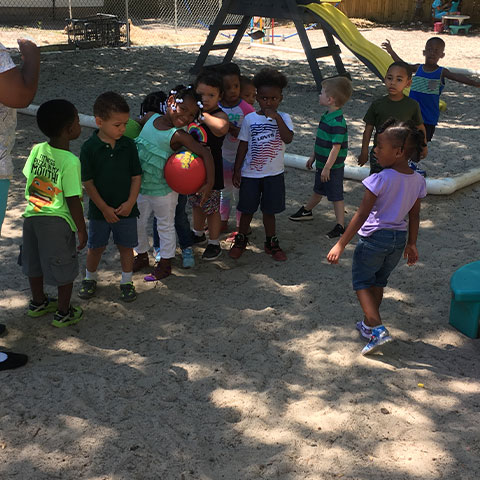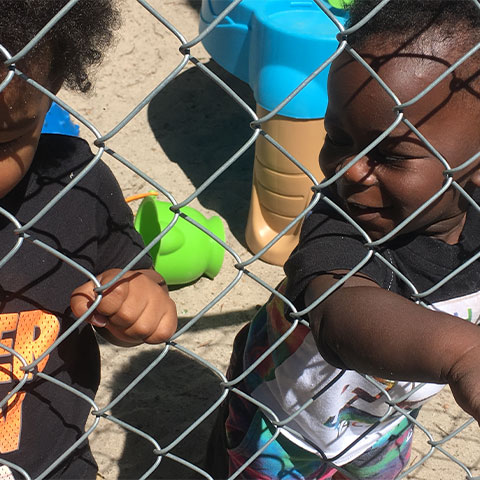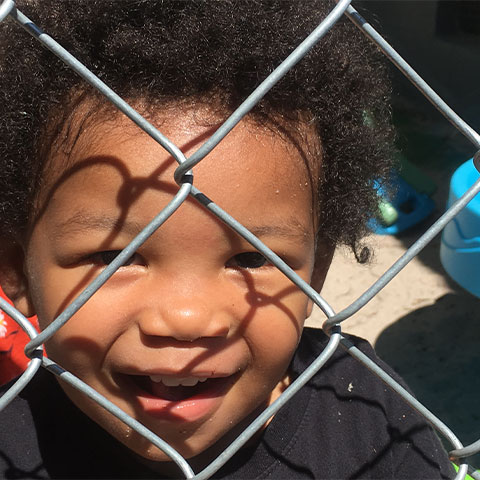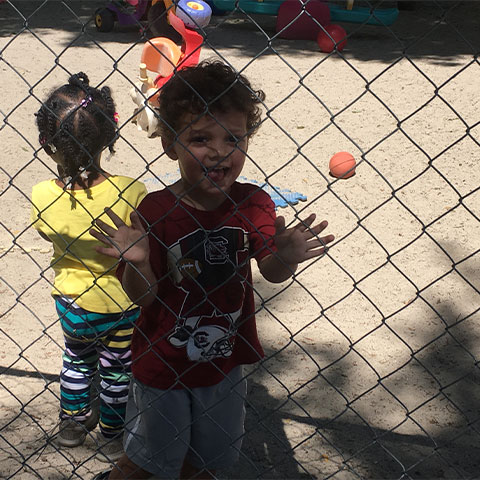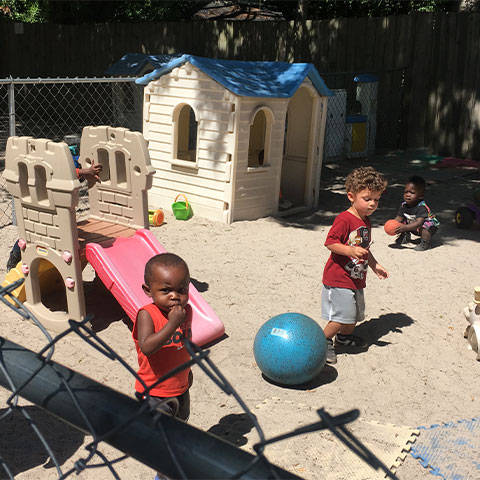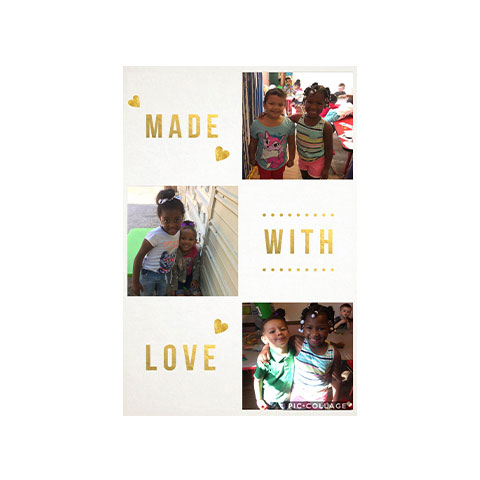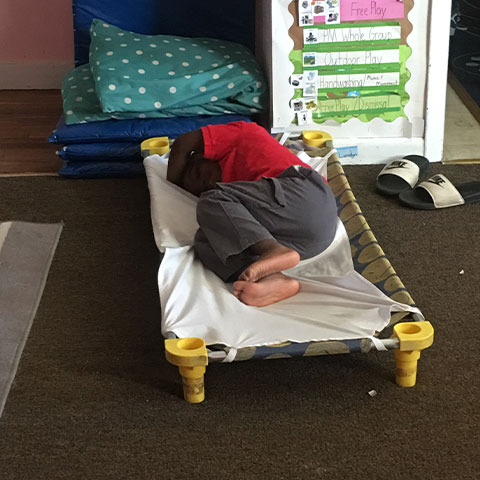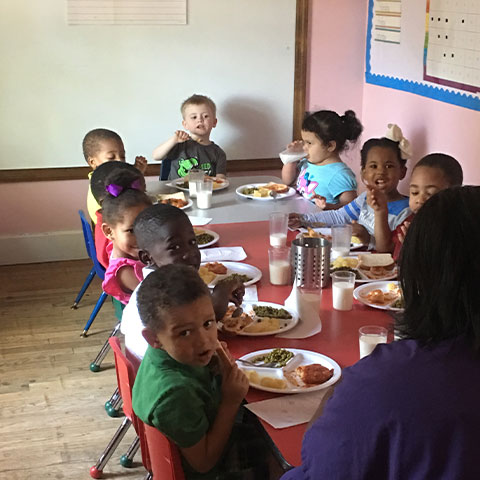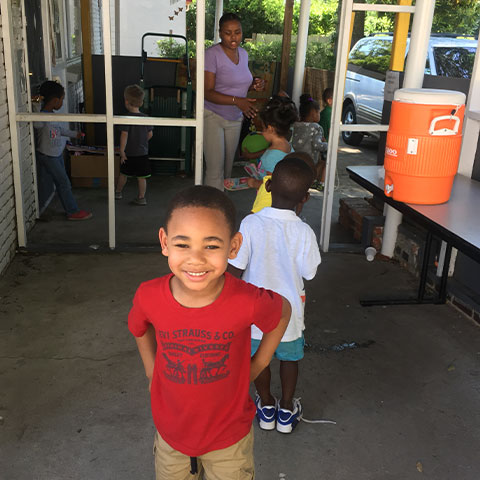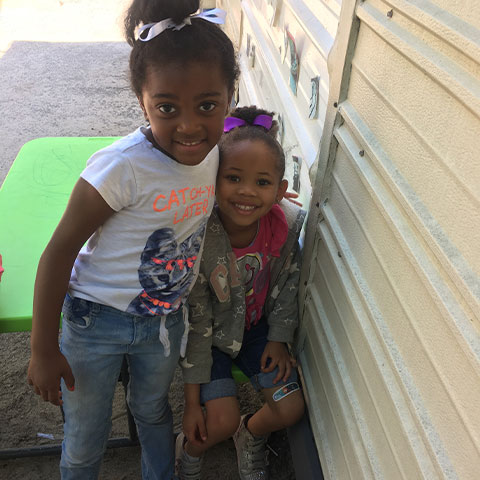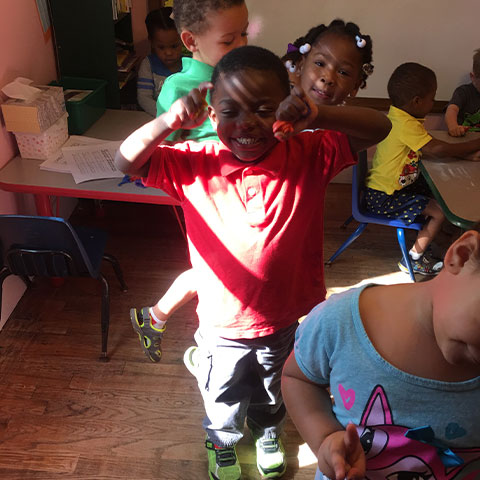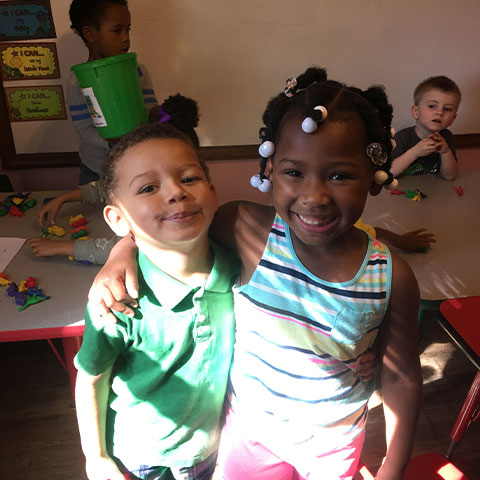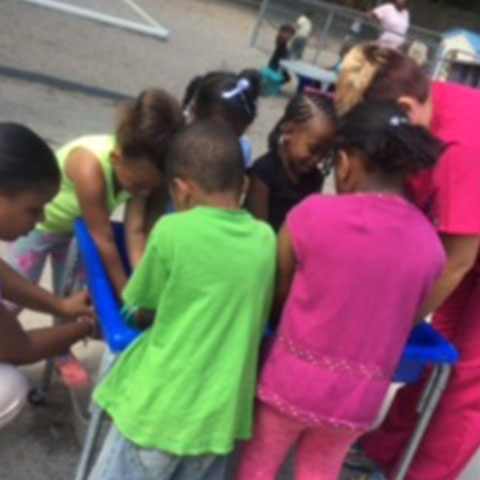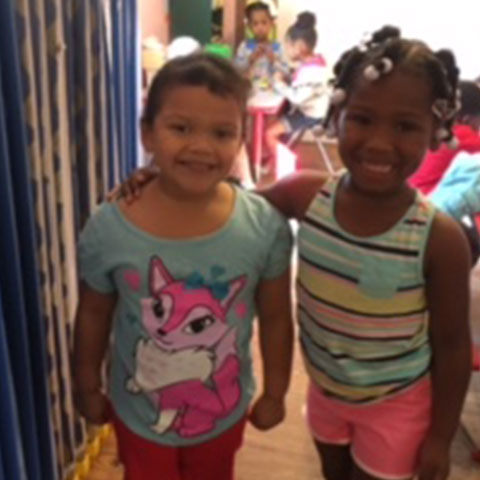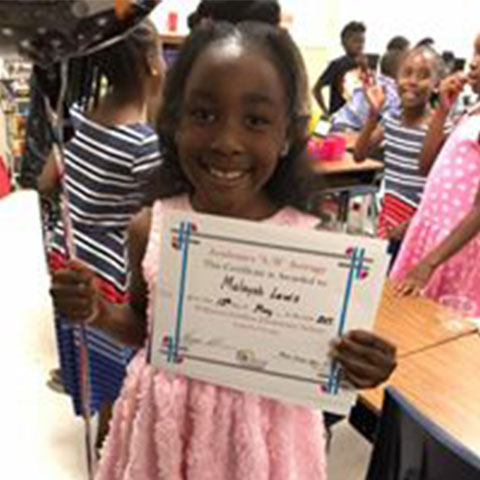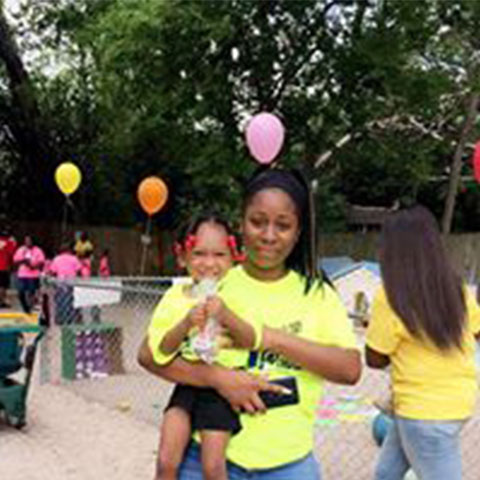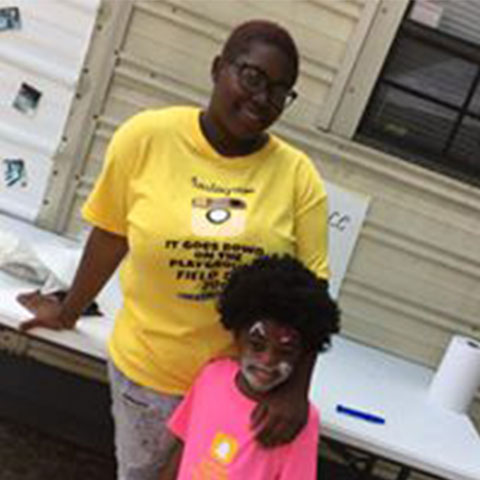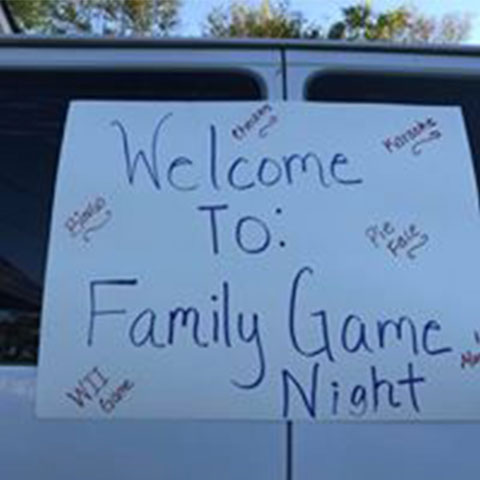Learning Environment
We provide a rich learning environment with curricula that are developmentally appropriate to the specific ages in each classroom. We have a flexible day routine that allows children to advance at their own pace. We strongly believe that learning happens through play. Learning and exploring are hands-on and are facilitated through interest areas. Our program is designed to enhance children’s development in the following areas: creativity, self-expression, decision-making, problem-solving, responsibility, independence, and reasoning. We encourage openness to that which is different from us, and the ability to work and play with others.
Copies of daily schedules are posted in each classroom.
Pets are only used for learning experiences, if appropriate vaccinations will be on file.
Outings & Field Trips
Weather permitting; we conduct supervised field trips to approved child friendly events (such as parks, movies, Chuck-E-Cheese’s, museums, local libraries, the zoo, etc). Children are accounted for at all times. Parents will be notified when a field trip is planned. A permission statement for participation in field trips is required for each child and must be signed by a legal parent/guardian.
Parents are encouraged to join their children on field trips.
Parents are also responsible for all costs of the field trips and must be paid the day prior to the scheduled field trip. This includes all admission fees, lunch, and extra spending money (extra spending money is optional for the parent to provide to the child).
On some field trips, lunch will not be provided by the center and will be the responsibility of the parent. The parent will be notified prior to the day of the scheduled field trip. Parents must provide funding for their child’s lunch; the lunch will meet the requirements of the USDA Child and Adult Food Program.
For field trips, please dress your child appropriately for the season. Socks and walking shoes are a requirement. Sandals and flip-flops are not appropriate for walking and make it difficult for your child (if your child is wearing sandals or flip-flops, they will not be allowed to participate in the field trip whether or not permission has been given).
The safety of children and staff will be guarded in all activities of child care programs. Proper restraint systems (seat belts) and the correct use of them are critically important during travel to/from the child care program as well as during field trips.
Booster seats from ages 3 to 8 years must be provided. The center does not provide booster seats for field trips.
No field trips are provided for our infants.
Transition
Your child’s transition in child care should be a positive and exciting learning adventure. We will work with you and your child to ensure the smoothest possible transition occurs as new routines and new people are introduced.
Transition from home to center. Prior to your child’s first day, you will have an opportunity to tour the center, meet with your child’s peers and teachers, and communicate any anticipated concerns. At this time please share the best communication methods that the teacher may use to reach you.
Transition between learning programs. Children are transitioned to the next program based on age, developmental readiness, state licensing requirements, and space availability. During the transition, current and future teachers will meet with you to propose a plan to introduce your child into the new program.
Transition to elementary school. Transition activities such as a field trip to a local elementary school, creating a mural of special friends and special times at our center will be part of your child’s education at our center. We will provide you with information on local schools, what to expect, and ideas on how to talk to your child about going to elementary school.
Television Time
Our normal daily routine does not include television watching, but from time-to-time, we may record a television show without advertisements as a teaching aid and discussion stimulator. Television consumption will not be longer than twenty minutes and the program will be screened prior to showing. Programs will consist of non-violent and high-quality educational material. Our focus is to provide your child a positive experience with increased understanding of the world. This must be approved by the Director.
Electronic Media
Electronic Media are limited to 20 minutes or less per day per child. Internet sites and software are pre-screened to contain non-violence and high-quality educational content.
Multiculturalism
Multiculturalism is vital for all children because it sets social goals and promotes respect for all people and the environment we inhabit. We utilize books, music, games, and a wide range of activities as aids to teach our children respect for our world and the diversity of life upon it.
Celebrations
Our holiday policy encourages an enhanced understanding of and respect for different cultures and beliefs of children, families, staff and community. We acknowledge cultural holidays.
Rest Time
Infants sleep according to their own schedule and are put to sleep on their backs. No blanket is placed in infants cribs only fitted sheet is permitted. Caregivers are trained on SIDS and information sheet pertaining to SIDS is located on the Parent Information Board in infant classroom. Back to Sleep pattern is used for all infants who cannot turn themselves due to the Sudden Infant Death Syndrome (SIDS) and parents are encouraged to do the same at home.
After lunch, all children less than [7] years of age participate in a quiet rest time. Children are not required to sleep and may be given quiet activities.
Napping Materials are provided by the center in accordance with the state policy. This includes mats/cots and fitted sheets. Mats/Cots are placed 3 feet apart and the children are placed in a head to toe position to avoid the spread of germs.
Children may bring a small blanket from home; the blanket must be taken home with the child each Friday for cleaning and can be brought back to the center on Monday.
Toilet Training / Diaper Changing
The most important factor in making the toilet learning experience successful and as low-stress as possible is a family/teacher partnership that supports the child. Research indicates that children cannot successfully learn how to use the toilet until they are physically, psychologically, and emotionally ready. Many pediatricians say that most children under 24 months of age are not physically capable of regulating bladder and bowel muscles. Most positive toilet training occurs only after children show signs of physical control or awareness of their bodily functions
